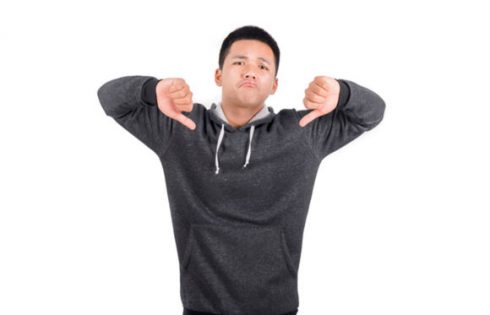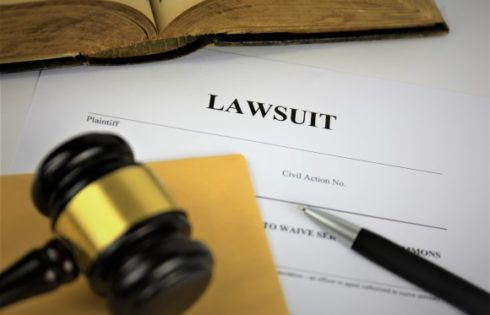
Campus safety consultant: ‘Seriously?’
When an accused student sought evidence to prove that his due process rights were violated and that anti-male bias played a role in the verdict, his university had a novel suggestion.
Rather than handing over confidential data on disciplinary hearings, New York University told a federal judge that “common sense” dictates that the student can gather this data merely from campus gossip.
“John Doe” sued the elite private university in January, 11 months after his accuser filed a sexual assault claim against him for a sexual encounter that was itself 11 months prior.
He alleged selective enforcement motivated by anti-male bias. NYU exonerated him in a second adjudication three days after he sued, a result that was upheld on internal appeal.
John’s initial guilty finding was based on NYU’s conclusion that his accuser was “incapacitated” under campus policy. He said there was no evidence for incapacitation, meaning that the adjudicator, hearing and investigation itself were affected by anti-male bias.
NYU sought to dismiss the lawsuit in August, following an amended complaint by John that added intentional infliction of emotional distress, breach of contract and New York’s version of a Title IX violation. He also sought damages for the first time.
The university claims that John’s complaint doesn’t meet the standard for selective enforcement set by the 2nd U.S. Circuit Court of Appeals. He fails to give evidence of female students being treated differently in a similar situation and makes “naked allegations” that are “too conclusory” to survive a motion to dismiss.
That’s all the more reason for NYU to turn over data on disciplinary investigations, John responded, so that he can establish whether females were treated more favorably. Legal discovery is crucial to his case and supersedes the university’s privacy policy, he argues.
While NYU argued that John’s exoneration shows bias and procedural errors did not occur, John responds that he suffered emotional distress and reputational harm, among other recoverable damages.
NYU’s Sept. 27 filing in response to John’s response doubles down on its original arguments. He can’t “plausibly allege” that NYU had “any intent to discriminate against him on the basis of gender” or show “clear procedural irregularities,” including pressure to find him guilty.
But the university also made a claim that is already drawing derision in legal circles: The confidential data John seeks can be obtained through the campus grapevine.
“Seriously?” tweeted S. Daniel Carter, who runs a campus safety consulting business.
“The details of higher education disciplinary proceedings are among the most secret of secret things, at the overwhelming majority of institutions basic statistics aren’t even available.”
Accused student demands confidential data from NYU to show anti-male bias by The College Fix on Scribd
Seriously? The details of higher education disciplinary proceedings are among the most secret of secret things, at the overwhelming majority of institutions basic statistics aren’t even available.
— S. Daniel Carter (@sdccampussafety) October 11, 2019
Didn’t interview key witnesses in 111-day investigation
John Doe, an Asian American undergraduate studying film at NYU’s Tisch School of the Arts, met “Jane Roe” during the fall semester of their freshman year because they lived in the same dorm.
She had been “upset about something” and “drinking at a party” on March 17, 2017, after she was rejected by a fellow student. Jane went back to her dorm and began texting John. They met in an empty study room after midnight and began to kiss, followed by Jane performing oral sex on John.
Their stories diverge at the point where they started intercourse. Jane claims that John used “coercive” but “not threatening language” to get her to have sex. She also claims to have been incapacitated during sex, even though she told Title IX investigators she could remember conversational elements.
John claimed it was Jane who suggested having sex in the study hall and cited his surprise when she texted later to accuse him of taking advantage of her. She didn’t smell or taste like alcohol, or show any signs of incapacitation such as stumbling when she went back to her room, he said.
Jane reported the incident as a sexual assault to the NYU Office of Student Conduct on Feb. 21, almost a year later. Under NYU’s sexual misconduct policy, consent turns on whether a reasonable person in John’s position would have “understood [the other] person’s words and acts as an expression of consent.”
Incapacitation is a “state beyond drunkenness or intoxication” where a person must be so far gone that they are “unaware that sexual activity is occurring,” NYU’s policy continues.
NYU blew past its self-imposed timelines for investigations and hearings with no explanation, according to John’s lawsuit. It’s supposed to complete an investigation within 35 days and hold a hearing within 60 days of the investigation.
Title IX investigators Jacqueline Cornell and Samuel Hodge took 111 days to conclude the investigation from Jane’s report on June 11, according to John. They interviewed her once, on March 19, 2018 – a full year and one day after the incident – and interviewed John in April and May.
NYU’s first policy violation, as well as Title IX violation, was an email to John March 22 asking for a meeting, he said. That’s because the Title IX coordinator did not “provide details about the alleged misconduct or cite the section of the policy” that John allegedly violated.
Investigators failed to interview Jane’s roommates and friends in the first hearing, before John’s successful appeal, who could have given a clearer indication of her condition before and after the alleged incident.
They failed to “obtain and review” surveillance tapes from the dorm from the night of the incident, he said. Also unaddressed by investigators: Jane’s ability to recollect events properly while taking the medication Lexapro, which treats depression and anxiety.
A day after the investigators concluded their report, OSC Director Craig Jolley asked them to interview three extra witnesses, who all gave evidence contradicting Jane’s account. John’s suit argues these post-report interviews were proof of the investigators’ lack of evidence despite the prolonged period.
Jolley nonetheless found that Jane had been incapacitated – an arbitrary decision influenced by bias, according to John, given the uniform evidence against Jane. This violated the university’s promised evidence standard of “preponderance.”
The Aug. 22 hearing adjudicated by Jolley took place 17 months after the incident.
NYU suspended John for five semesters, declared him “persona non grata” throughout the suspension, and put a notation on his transcript. He was required to submit to the re-enrollment process, should he return to NYU, and hit with a no-contact order regarding Jane.
Accused student asks court to block NYU’s second kangaroo court hearing by The College Fix on Scribd
Accuser’s roommate said she seemed ‘proud’ of her sexual conquest
John immediately appealed the decision, claiming due process violations and specific examples of pressure to punish males at NYU. The appeals panel determined Oct. 1 – the same day as the hearing – that the evidence was inconsistent with the incapacitation finding and that witnesses close to Jane should have been interviewed.
Fifty-eight days later, NYU issued a new investigation summary report that included more interviews from relevant parties. It did not bode well for Jane.
The party host said he didn’t remember her attending, and Jane’s roommate said she wasn’t stumbling or otherwise acting incapacitated. Jane seemed “proud” of the sexual encounter in the following days, her roommate testified.
John’s lawyer protested the external adjudicator chosen by NYU for the second hearing Jan. 28, 2019. Jane Greenspan was a “fellow ‘College and University Title IX’ adjudicator and former sex crimes prosecutor selected sua sponte by NYU for this process,” and NYU refused to disclose whether she had a conflict of interest.
John’s lawsuit, intended to preempt this hearing, claimed NYU had violated Title IX and its own policies by engaging in selective enforcement due to anti-male bias.
It heavily relies on the 2nd Circuit’s 2016 ruling against Columbia University in a similar lawsuit. John merely has to meet a “minimal inference” of gender bias by NYU, he argues, on the grounds that it “chose to accept an unsupported accusatory version” of the alleged sexual assault and “declined to explore the testimony of Plaintiff’s witnesses.”
NYU reached an “erroneous outcome” on the basis of gender bias, meaning it had an “articulable doubt to the accuracy of the outcome of the proceeding.”
The court rejected John’s argument that he would suffer “irreparable harm” if he didn’t obtain a restraining order and preliminary injunction against the second hearing. It also denied him pre-hearing discovery.
John prevailed in the second hearing anyway, and Jane’s appeal was rejected. The panel found that Greenspan, the external adjudicator John’s lawyer had sought to exclude, ruled on the evidence and used the correct standard.
Even though he was free to resume his studies at NYU, John amended his lawsuit in May to expand the claims against the university and change “erroneous outcome” to “selective enforcement.”
New York University rejects appeal after exonerating “John Doe” of sexual assault by The College Fix on Scribd
NYU data unnecessary because ‘word spreads quickly around campus’
NYU’s motion to dismiss in August claimed that John’s accusations hinged on the second hearing being “rigged against him.” Since the student ultimately prevailed, he had no damages to recover and his arguments were merely conclusory.
If John also prevailed in court, to NYU’s knowledge, he would be the “first student cleared of any sexual misconduct in a university disciplinary proceeding to successfully bring a Title IX claim.” That would be “unwarranted.”
“Faced with a clear-cut case of selective enforcement against Doe,” John responded Sept. 13, NYU resorts to a “no harm, no foul” approach. He reiterated that Doe v. Columbia entitles him to a “minimal plausible inference of discriminatory intent” at this stage of the legal process, and that the 2nd Circuit had reaffirmed this holding in August.
John cannot argue his case with specific data about gender bias unless the court orders NYU to turn over its confidential investigations, so he can see how female students were treated, he said.
John’s complaint about confidential data “rings hollow as a matter of fact and law,” NYU’s Sept. 27 filing argues.
He doesn’t need to review confidential NYU data because John does in fact know about “at least two other student disciplinary outcomes,” the university argued. It noted that his initial complaint referenced those proceedings in a social media post dating to before his first hearing.
Hence, it is “plainly not ‘impossibl[e]’” for John to obtain data without NYU’s help, the university said. “Indeed, ‘common sense’ … teaches that students talk to one another” and that “word spreads quickly around campus, through social media and other means,” it continued, quoting the Supreme Court’s Iqbal precedent.
Because Supreme Court precedent is clear here, the 2nd Circuit’s lower pleading standard cited by John should be ignored, NYU said.
NYU argues that accused student can obtain data on campus disciplinary investigations through gossip by The College Fix on Scribd
MORE: 2nd Circuit reinstates reverse-discrimination case against Columbia
IMAGE: pathdoc/Shutterstock
Like The College Fix on Facebook / Follow us on Twitter






Please join the conversation about our stories on Facebook, Twitter, Instagram, Reddit, MeWe, Rumble, Gab, Minds and Gettr.